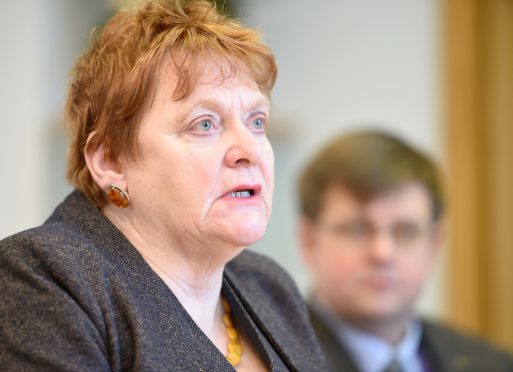Potential savings outlined in draft Highland Council papers suggest axing up to 300 education jobs – including 40 teachers and 30 additional needs staff – in a bid to plug a £25.8million budget gap.
The budget for helping vulnerable adults through various organisations, including Women’s Aid and Highland Blindcraft, could be cut by £188,000.
Further proposals include increasing car parking charges and fees for burials and cremation by 10%.
Highland Council leader Margaret Davidson said: “No decisions will be made until the council meets on 15 February.
“We are working across the council with members, staff and unions to identify a range of proposals to bridge the budget gap and many things will change.
“We have been given a very tight settlement and despite what has been said by the Scottish Government, this has effectively removed nearly £10 million from our budget.
“This Scottish Government imposed cut in funding will impact on the delivery of front line services and, with other additional budget pressures, has left us with nearly £26 million to find in savings.
“We are doing our level best, working closely with staff, to find savings with the least impact on communities.
“However we will have to consider all options and that includes some very unwelcome proposals in the face of this huge gap in our resources.”
Scottish Conservative MSP for the Highlands and Islands, Edward Mountain said: “The cuts proposed by Highland Council are unacceptable and that’s not in the least surprising given the SNP’s cuts to local government.
“The SNP are overseeing a £10 million real terms cut to Highland Council this year which will hurt front line services such as education.”
A Scottish government spokesman said they have protected day-to-day local government spending, while increasing the capital budget.
He added: “Local authorities will receive more than £10.5bn through the local government finance settlement in 2018-19.”
“Highland Council are receiving total central government funding – revenue and capital – of £474m this year and will receive over £472m in 2018-19, plus their fair share of an extra £181m which has still to be distributed.
“We are using our tax varying powers to boost investment in public services, and if local authorities choose to use their powers to increase council tax, by up to 3%, they will have an overall real-terms increase in the funds at their disposal, to support local services.”
